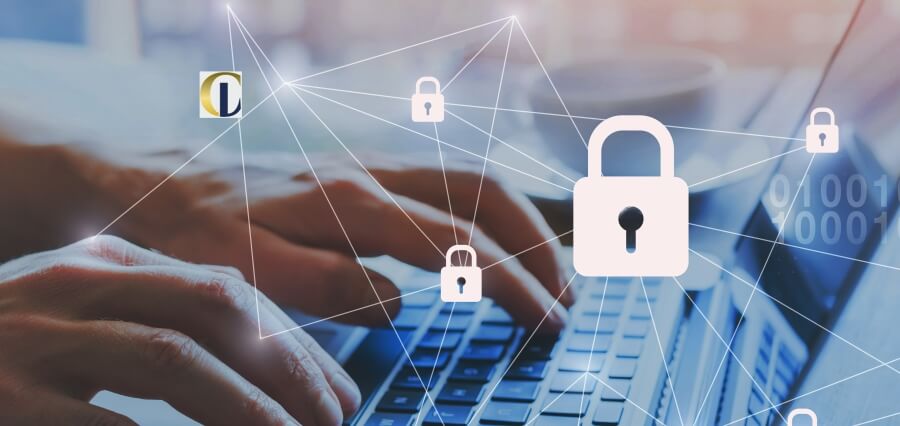CEOs Take Charge
In today’s digital age, cyber threats are a constant concern for businesses of all sizes. Data breaches, ransomware attacks, and other malicious activities can cripple operations, erode customer trust, and inflict significant financial damage. While robust technical solutions are essential, a crucial element often gets overlooked: strong leadership from the CEO.
Setting the Tone from the Top: Effective cybersecurity starts with a clear message from the top. When CEOs champion cybersecurity and prioritize it as a business imperative, it sends a powerful message throughout the organization. This fosters a culture of security awareness where employees understand their role in protecting sensitive data and systems.
Security is Not Just an IT Issue: Cybersecurity is not just an IT department responsibility; it’s a business risk that requires leadership involvement. CEOs need to have a fundamental understanding of cybersecurity threats and the potential impact on their organization. This allows them to make informed decisions about resource allocation, investment in security solutions, and the development of a comprehensive security strategy.
Leading by Example: Beyond pronouncements, CEOs must demonstrate their commitment to cybersecurity through their actions. This includes adhering to security protocols themselves, promoting security awareness training for all employees, and holding leadership teams accountable for upholding security standards.
Building a Culture of Security Awareness: A strong security posture requires a workforce that is vigilant and understands potential threats. CEOs can play a crucial role in instilling a culture of security awareness by encouraging open communication, promoting employee education programs, and rewarding responsible security practices.
Communication is Key: CEOs play a critical role in communicating the importance of cybersecurity to stakeholders. This includes investors, customers, and partners. By demonstrating a proactive approach to security, CEOs can build trust and enhance the organization’s reputation.
Collaboration is Essential: Cybersecurity is a complex issue that requires collaboration across various departments. CEOs can facilitate this collaboration by establishing clear lines of communication, fostering teamwork between IT and other departments, and encouraging information sharing on potential threats.
Cybersecurity as a Competitive Advantage: In today’s data-driven world, strong cybersecurity is not just a defensive measure; it’s a competitive advantage. CEOs who prioritize cybersecurity can build trust with customers, attract top talent, and ensure business continuity in the face of an evolving threat landscape.
Strategic Vision and Prioritization
CEOs are responsible for setting the strategic vision of a company, which includes prioritizing network security. By understanding the potential risks and impacts of cyber threats, CEOs can allocate the necessary resources and attention to protect the company’s digital infrastructure. Their commitment to cybersecurity sets a tone at the top, influencing the entire organization’s approach to security practices.
Resource Allocation
Effective network security requires significant investment in technology, talent, and training. CEOs have the authority to allocate budgets and resources to build a resilient cybersecurity framework. This includes investing in advanced security technologies, hiring skilled cybersecurity professionals, and providing ongoing training for employees to stay updated on the latest threats and best practices.
Risk Management
Network security is a crucial aspect of overall risk management. CEOs must understand the potential financial, reputational, and operational risks associated with cyber threats. By integrating cybersecurity into the broader risk management strategy, CEOs can ensure that the organization is prepared to prevent, detect, and respond to cyber incidents, minimizing potential damage.
Compliance and Regulation
With increasing regulatory requirements around data protection and privacy, CEOs must ensure their organizations comply with relevant laws and standards. Non-compliance can result in hefty fines and damage to the company’s reputation. CEOs play a vital role in establishing policies and procedures that adhere to regulatory requirements, demonstrating a commitment to protecting customer data and maintaining trust.
Culture of Security
Creating a culture of security within an organization starts at the top. CEOs must lead by example, promoting a security-first mindset across all levels of the company. This involves regular communication about the importance of cybersecurity, encouraging employees to report potential threats, and fostering an environment where security is everyone’s responsibility.
Incident Response and Recovery
In the event of a cyberattack, the response and recovery process is critical. CEOs must be prepared to lead the organization through a crisis, ensuring that there are clear incident response plans in place. Their leadership can help coordinate efforts across departments, communicate effectively with stakeholders, and guide the organization towards a swift and effective recovery.
Innovation and Adaptation
The cybersecurity landscape is constantly evolving, with new threats emerging regularly. CEOs must stay informed about the latest trends and innovations in cybersecurity to ensure their organization’s defenses are up to date. By fostering a culture of continuous improvement and adaptation, CEOs can ensure their organization remains resilient against evolving cyber threats.
CEOs play a pivotal role in safeguarding their organizations against cyber threats. Their strategic vision, resource allocation, and commitment to fostering a culture of security are essential for building robust network security.
As cyber threats continue to grow in complexity, the involvement of business leadership in network security will remain crucial for protecting company assets, maintaining customer trust, and ensuring long-term success. Cybersecurity is no longer an afterthought; it’s a core business concern demanding leadership from the CEO. By setting the tone, demonstrating commitment, and fostering a culture of security awareness, CEOs can empower their organizations to navigate the digital age with confidence and resilience.








